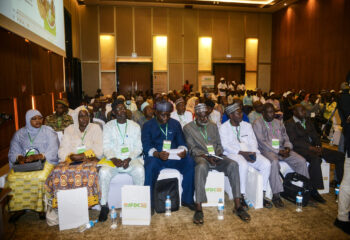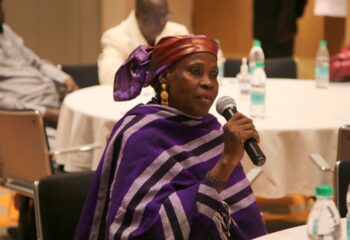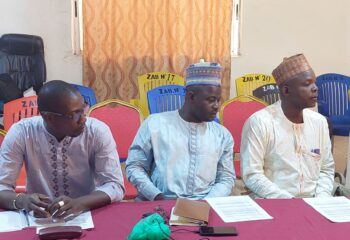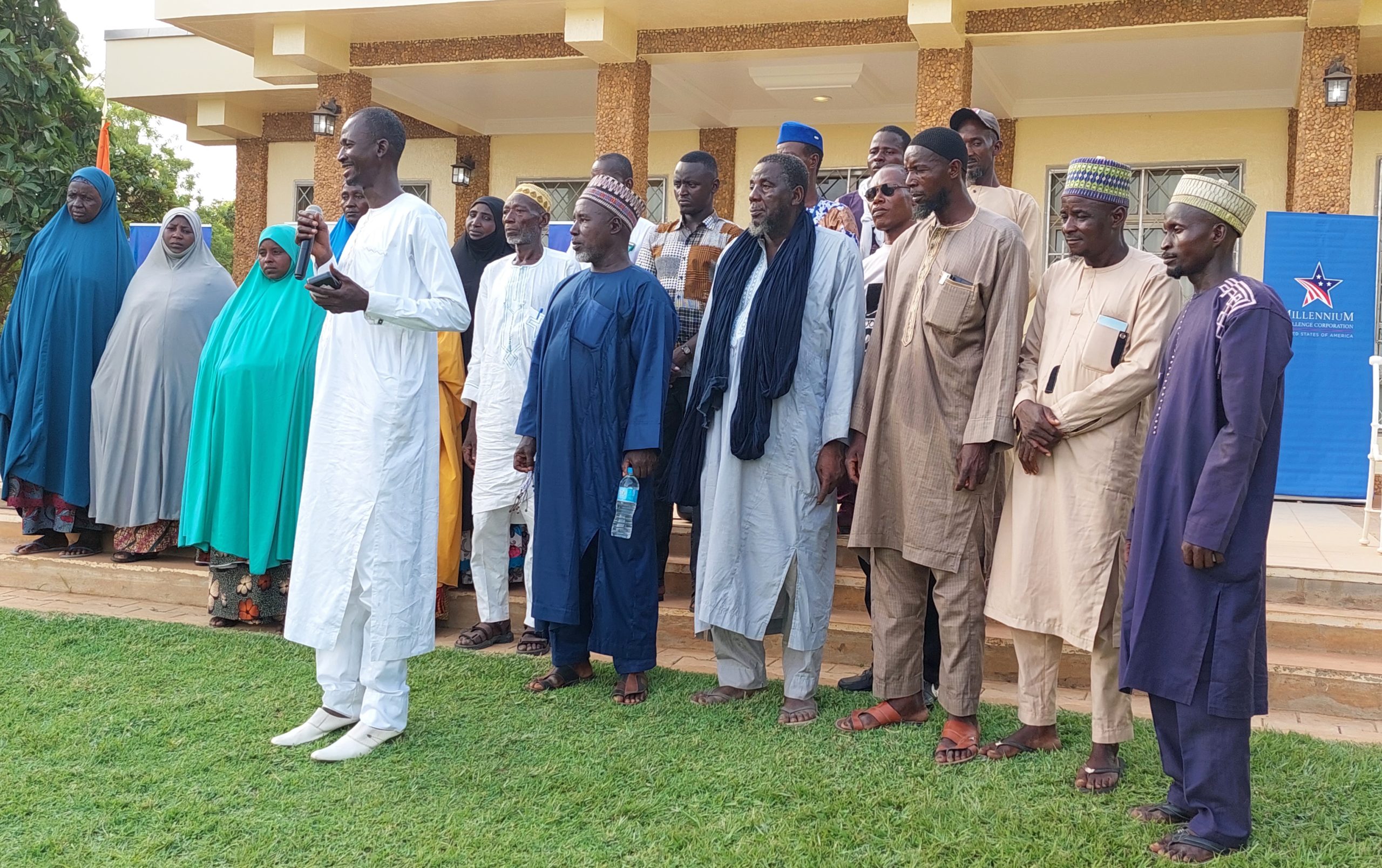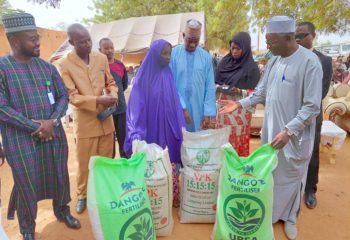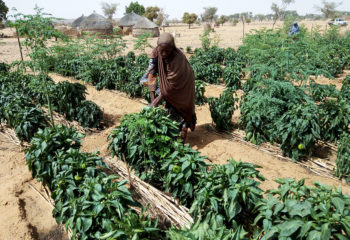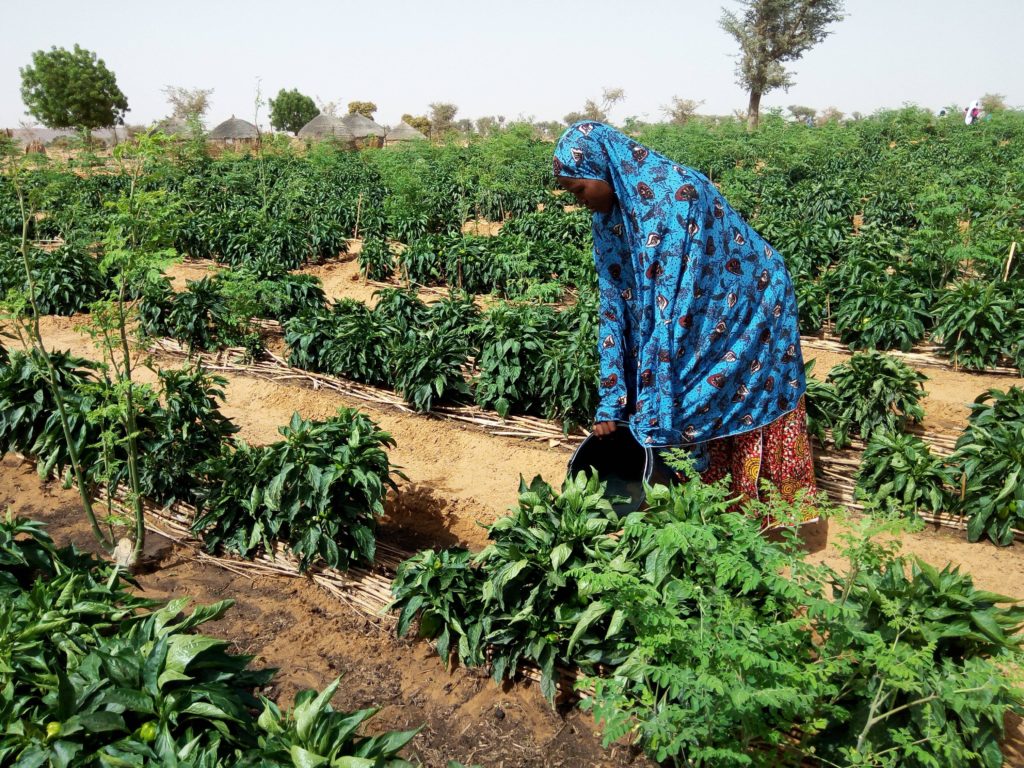
PARSEN (2018-2024), funded by the Millennium Challenge Corporation (MCC)/Millennium Challenge Account (MCA) Niger, is aligned with the Nigerien government’s strategy of increasing fertilizer use by way of the Decentralized and Partnership Strategy for Inputs Supply for Sustainable Agriculture (SIAD, August 2006), which outlines specific objectives relevant to the sector:
- Make the fertilizer supply process open and transparent. This will allow price and quality competitiveness, which will lower prices.
- Focus the price strategy on the market – at values comparable to regional prices – to make fertilizers affordable for all farmers.
- Direct the subsidy program to the most vulnerable farmers.
- Make appropriate fertilizers available and accessible to farmers, especially small farmers, across the country.
PARSEN is increasing Nigerien smallholders’ access to improved fertilizers.
PARSEN will contribute to improving Nigerien producers’ access to a wide range of fertilizers and more competitive prices through the following outcomes:
Intermediate Outcome 1: Fertilizer policies and regulations are reviewed to promote a leading role for the private sector in the supply and distribution of quality fertilizers.
Intermediate Outcome 2: A reformed grant program is put in place.
Intermediate Outcome 3: The private sector in fertilizer supply, production, and distribution is strengthened.
Intermediate Outcome 4: The reform of the fertilizer sector and its performance are known and regularly shared.
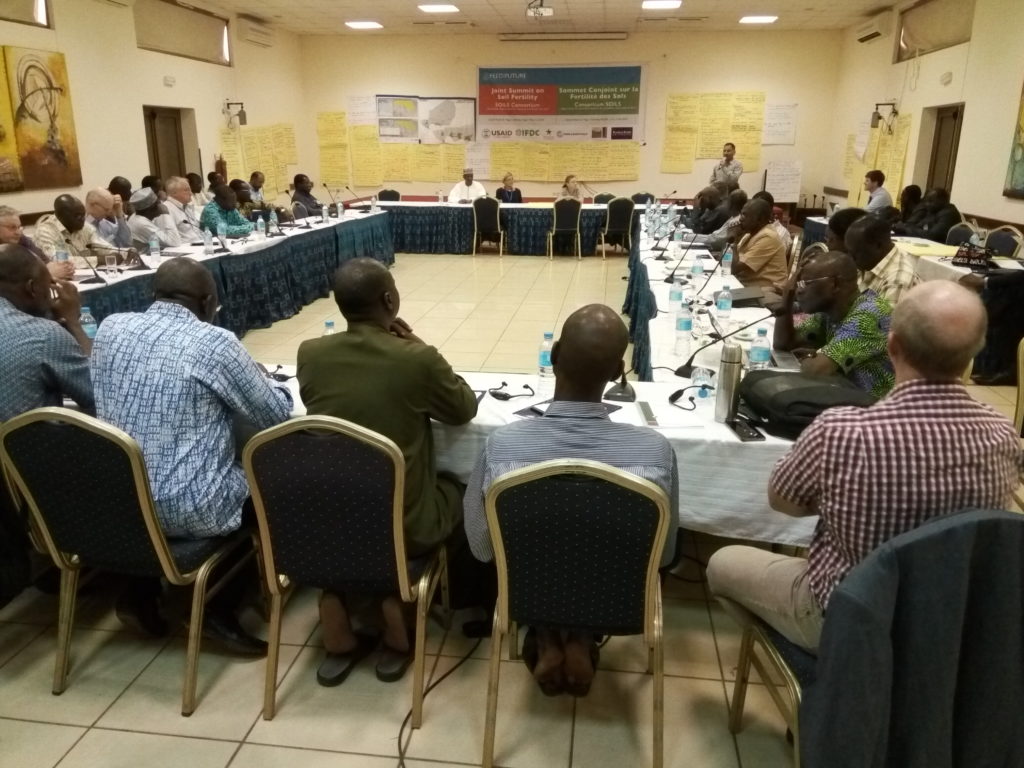
Goals Met
- Assisted in the development of the Nigerien government-adopted Fertilizer Sector Reform Plan.
- Created a fertilizer market observatory to monitor and regulate supply and distribution of fertilizer in Niger.
- Conducted a study on fertilizer importers and distributors in Niger.
The implementation of the Fertilizer Sector Reform Plan is led by the Ministry of Agriculture and Livestock, which oversees the regulatory bodies. These bodies are created within the Ministry and will provide leadership for the implementation of the Reform Plan.
The technical and financial partners involved in the fertilizer sector are fully involved in the reform to ensure synergy in the interventions. These include the European Union, KfW, and the World Bank.
Similarly, the role of producer organizations and the private sector is important for full liberalization of the sector and as such will occupy an important place in all PARSEN activities.
Impacts
2022
- Provided technical assistance for the successful implementation of Niger’s Fertilizer Sector Reform Plan, which is expected to significantly improve the use of fertilizers in agriculture through better involvement of the private sector.
- Supported the reform agencies in monitoring the fertilizer market, the Common Fertilizer Fund, the private sector, and the quality control system through the implementation of various activities.
- Reached 11,801 producers in eight regions of Niger, spread over 35 communes, through the Common Fertilizer Fund.
- Appointed, trained, equipped, and placed 51 fertilizer inspectors at the borders and in fertilizer consumption areas for the operationalization of fertilizer quality control.
2021
- Facilitated the dissemination of regulatory texts governing the trade of fertilizers and operationalization of the Common Fertilizer Fund.
- Provided support to pilot an e-voucher targeted fertilizer subsidy program, which will later be expanded to cover the eight regions of the country.
- Contributed to strengthening the capacity of the Directorate of the Ministry of Agriculture in charge of monitoring and quality control of fertilizers.
- Published two booklets: a collection of legislative and regulatory texts on fertilizers and a directory of private fertilizer suppliers in Niger.
2020
- Built the capacity of members of the national fertilizer importers, distributors, and agribusinesses association (ANIDE).
- Strengthened its business relationships with farmer organizations, financial institutions, and the West African Fertilizer Association (WAFA).
- Completed a specific fertilizer regulation framework, including adoption by Parliament and the Head of State, of an act on the suppression of offenses relating to fertilizer trade.
- Established a new Directorate of Fertilizer Inspection and Quality Control (DICE) within the Ministry of Agriculture.
- Facilitated the signing of a joint act by the Ministries of Agriculture and Finance for the establishment of a Fertilizer Common Fund.
2019
- The main reform bodies (Niger Fertilizer Market Observatory [OMEN] and the Technical Committee on Fertilizers in Niger [COTEN]) have been installed and are operational; the capacities of these reform bodies to play their role have been strengthened.
- Regulatory decrees concerning the quality control of fertilizers, import authorizations, and approvals have been developed, finalized, adopted, and publicized. Four decrees have been signed by the Minister of Agriculture; a bill has been adopted by the Nigerien government and forwarded to Parliament for adoption.
- 60 fertilizer inspectors have been trained in fertilizer inspection at border crossings and in the main fertilizer markets.
- A census of all private fertilizer operators has been conducted, and a directory of these operators is available.
- Private fertilizer players were encouraged to organize and have formed the Nigerien Association of Importers and Distributors of Fertilizers (ANIDE). Four training sessions have been organized to strengthen the capacity of fertilizer importers, distributors, retailers, and officers of ANIDE.
- A fertilizer subsidy system based on vouchers was tested and validated in 10 pilot rural districts. The system was used to distribute 1,400 tons of fertilizer to 7,211 targeted beneficiaries. Lessons learned from the pilot phase will be used to scale up the system to a greater number of rural districts.

